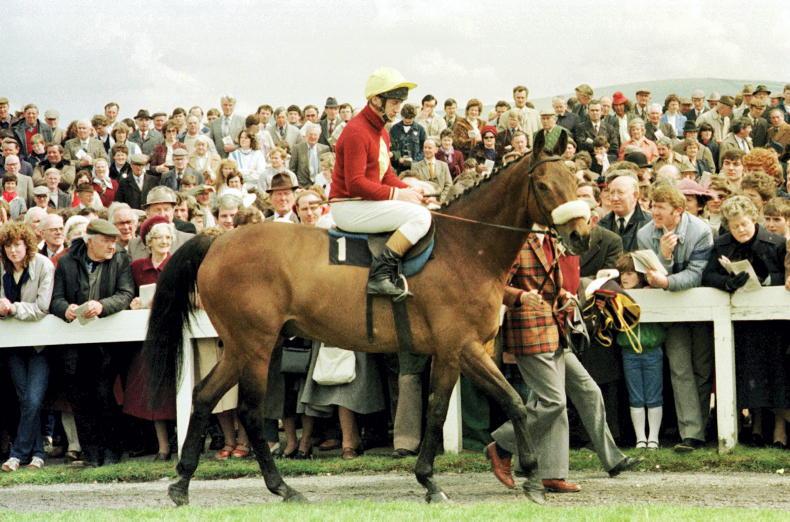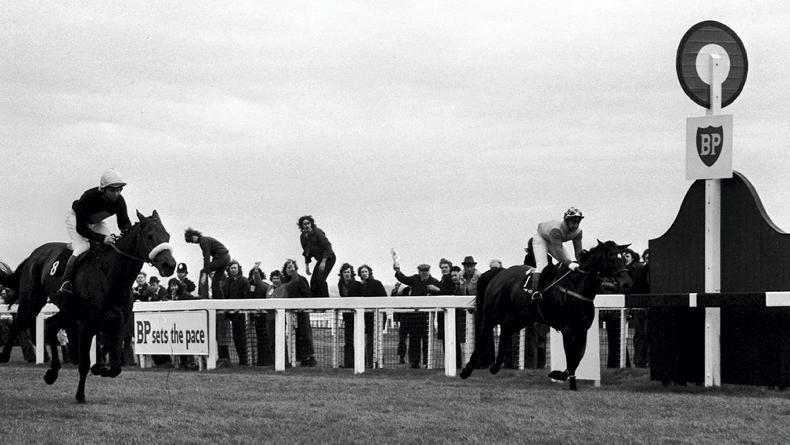WE’RE barely a week away from the Grand National, a race which has had a profound effect on my life, and I find myself feeling rather apathetic about the latest renewal. The sporting and political landscape has changed markedly since I watched the race first as a five-year-old. In the 1970s, the future of Aintree as a racecourse was in jeopardy, but the popularity of the big race was at an all-time high, with the vast majority of television viewers tuning in to watch BBC’s coverage of the world’s greatest steeplechase.
Even when the BBC were beginning to jettison racing two decades ago, and with many more channels available to television viewers, the race still gained two-thirds of available viewers and was broadcast to an estimated audience of 600 million across the globe. The figures for last year’s race were less encouraging, however, with an average viewing figure of 3.1 million people equating to a much-reduced audience share of 38%.
It’s easy to sit on the sidelines and complain that the Grand National has lost its appeal to the masses, but the slide is inevitable in the world of today.
In order to ensure the Grand National continues as an accepted form of sporting entertainment, Aintree needs to ensure that safety and welfare are paramount, but the reality of the race’s enduring popularity since first televised live in 1960 is that people don’t tune in because the race is safe and, while 2024 produced the astonishing statistic of a Grand National in which not a single horse fell (the four who came back riderless all unseated), the worry is that there was so little incident in last year’s race that those who watched it as a once-a-year spectacle, won’t necessarily be in a hurry to do so again.
Safety over scrutiny
It’s an inescapable truth that most neutrals would rather watch the 1967 Grand National with all its carnage, than the 2024 version where class came to the fore. Those who have a bet on one occasion a year are these days a rare breed, but for them the National has always been a kind of lottery, and the excitement of the race lies in what you might refer to as the thrills and spills, which used to be a guaranteed aspect of the contest. That is the double-edged sword, which the National has become for organisers.
Make it safe and you take away the thrill which drew non-racing fans to the event, but make it exciting and you increase the risk of injury and worse, and with horse welfare increasingly under the spotlight, that is the aspect of the event which has come under the greatest scrutiny.
In short, you can have a safe Grand National or you can have an exciting Grand National, but it’s currently very difficult to have both.
It’s hard for those of us who grew up watching the Grand National to enjoy it as we did, too, as most of us are too well aware of its precarious position, meaning every renewal we watch, we hope and pray for all the runners to return home safe, which leads to an almost unbearable tension during the nine minutes it takes to run the race.
But still the race holds an important place in my heart and, rather than bemoan the falling status of the National, I’m determined to make it an event to cherish again this year. I’d love my boys to watch the race, but know that if they aren’t interested there isn’t a lot I can do to persuade them, although my late father’s plan to get at least one of his children to take an interest worked perfectly when I was a kid, and I might just try the same tactic.
Planting the seed
In 1977, my father had four children under the age of 10. He also had a long-held interest in horse racing and wanted one of his children to share that interest; in order to sow that seed of intrigue, he placed bets on four of the favourites for the Grand National and presented the betting dockets to me and my siblings, as a means of ensuring our interest in at least one race.
I can’t recall whether my sister and younger brother watched any of the race, but yellow slips bearing the names of Pengrail and Davy Lad soon found their way into the bin and, when the horses returned for a second circuit, I recall that I was transfixed, and standing behind me, I could feel my brother Arthur’s growing sense of excitement as Andy Pandy was left in front by Boom Docker’s refusal at the 17th when well clear. I was also beginning to get excited at this point, as Red Rum’s fluffy noseband had also popped into view at the same point having been some way behind the leader on the first circuit; I remember John Hanmer passing commentary on to Julian Wilson, whose words I can still recall:
“Yes, and Andy Pandy is well, well clear [heart sinks] from What A Buck in second. Towards the outside is Red Rum, who is going really well [heart soars again] as they head down to the one before Becher’s.”
The race was set up perfectly, with Arthur and I literally clutching tickets on the two horses still cantering, but what happened next may well have changed our lives forever. “Andy Pandy’s down! Andy Pandy down at Becher’s. Nereo is also down at Becher’s and Brown Admiral has gone at Becher’s as well.”
In that moment, Arthur, poised to grasp his own moment of glory, let out a yowl of despair and turned his back on the action. He didn’t watch another second of that historic race, and he has not watched that, or any other race since.
Mixed feelings
But for me, the next two minutes were a mixture of anxiety and bliss as Red Rum took charge and galloped into the record books, with only loose horses to keep him company.
My confusion came at being unsure whether the riderless horses counted in the finish, but having been assured that they didn’t, I enjoyed the moment immeasurably. I had found my common ground with da, which would provide us both with great enjoyment and easy fellowship over the next 20 years, and in doing so had discovered a world, which would transform my entire existence.
It was, in effect, love at first sight for me and, while I often think about what might have happened if Andy Pandy had stayed on his feet on that fateful day, or if those precious yellow dockets had found their way to different hands, the truth is that Arthur’s interest was prosaic as was his personality; he’d have saved the tenner he might have won to fund a long-term ambition.
I was the hot-blooded one and I suspect I was completely and fatally besotted long before Red Rum took his ovation from an appreciative Liverpool crowd.




 This is a subscriber-only article
This is a subscriber-only article
 It looks like you're browsing in private mode
It looks like you're browsing in private mode









SHARING OPTIONS: